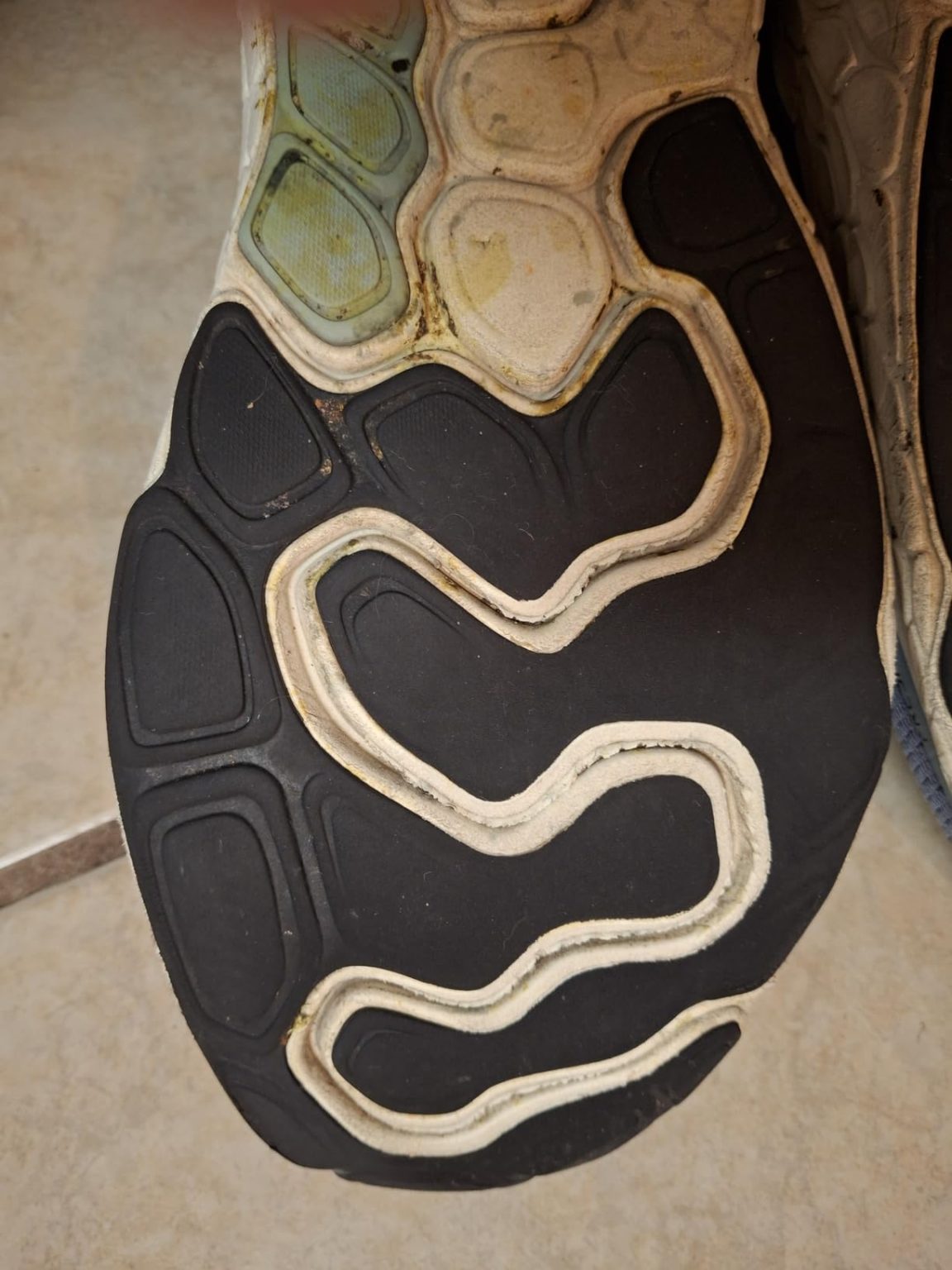Tuesday morning, 6:47 AM, my neighbor asked me why I was limping after my usual 5-mile loop. Mike here, and after dealing with plantar fasciitis for months, I was desperately searching for affordable relief when Amazon’s algorithm served up the New Balance Fresh Foam Kaiha Road. At under $70, I was skeptical but curious enough to spend 6 weeks putting these through comprehensive real-world testing. The results? The most comfortable shoe that disappointed me the fastest.
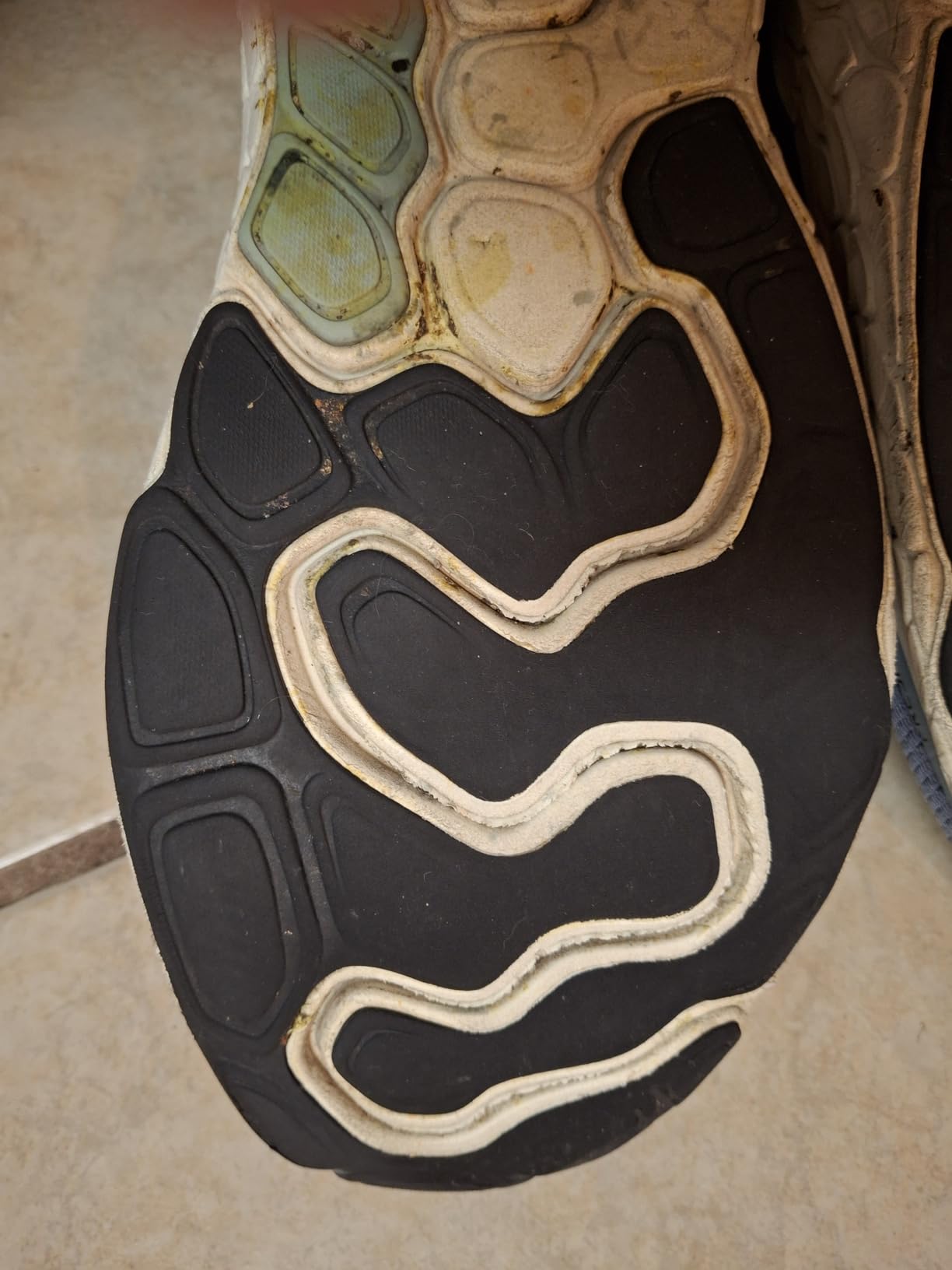
Technical Specifications
- 💰 Price: $65-75 ()
- ⚖️ Weight: 10.2 oz (men’s size 9)
- 📏 Heel-to-toe drop: 8mm
- 📐 Stack height: 32mm heel / 24mm forefoot
- 🧪 Midsole material: Fresh Foam X
- 👟 Upper material: Engineered mesh with synthetic overlays
- 🏃♂️ Category: Daily trainer/recreational running
- 🎯 Best for: Walking, light jogging, comfort-focused training
- ⏱️ Testing period: 6 weeks, 45 total sessions, 120+ miles
Design, Build Quality & Real-World Performance
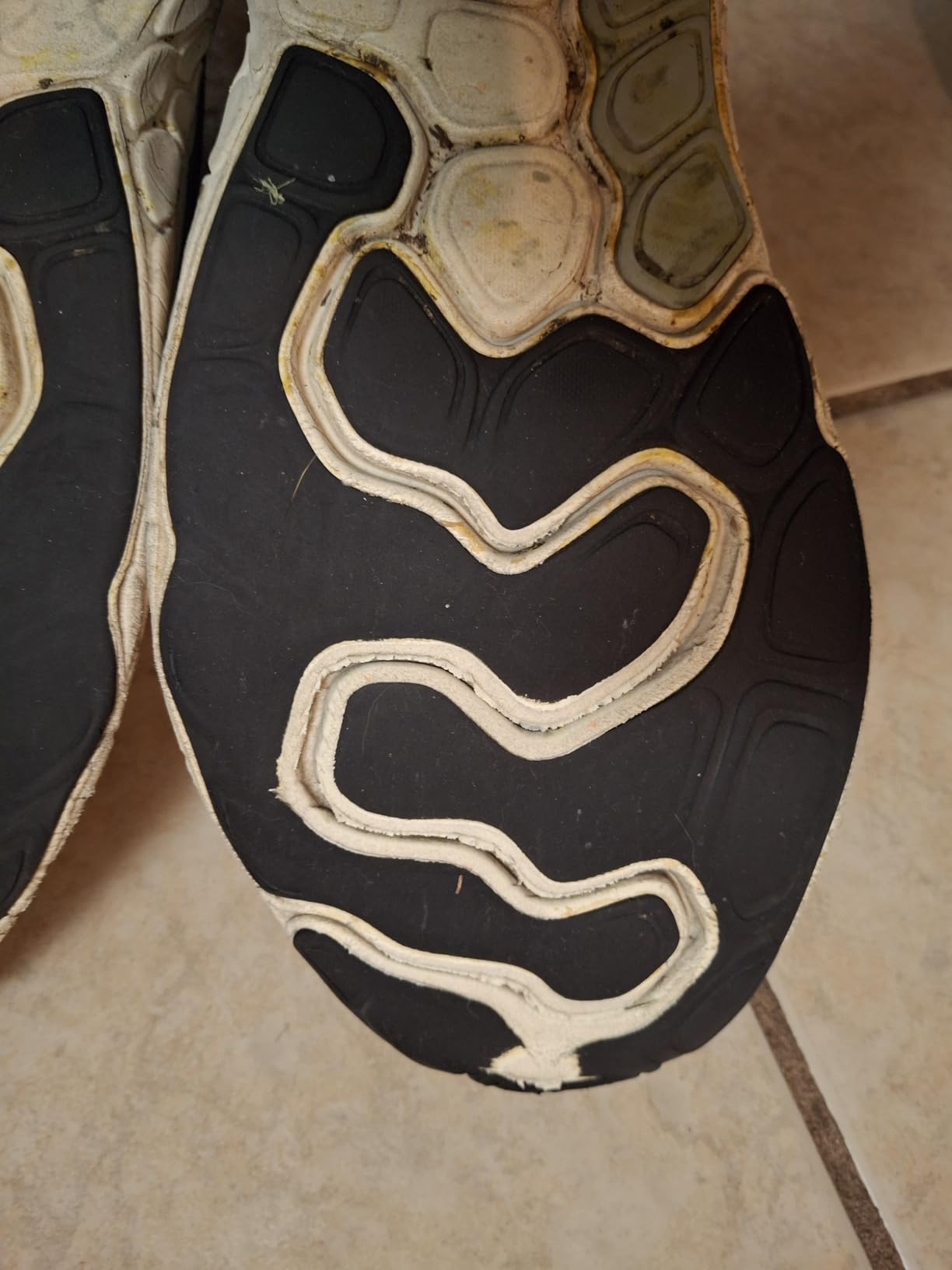
The Fresh Foam Kaiha Road immediately catches your eye with its substantial midsole stack – this thing looks like it could double as a platform shoe. The engineered mesh upper feels lightweight and breathable during the initial try-on, with no-sew overlays providing a clean, modern aesthetic. The black and gray colorway I tested has a understated look that works for both gym sessions and casual wear.
My first run immediately revealed both the shoe’s greatest strength and its fatal flaw. The Fresh Foam X midsole delivers genuinely impressive cushioning – I’m talking cloud-like comfort that makes you want to keep moving. At 175 lbs, I felt like the foam was absorbing every impact while providing enough energy return to keep my legs feeling fresh. The wide toe box accommodated my feet perfectly, and the overall fit was true to men’s size 9.
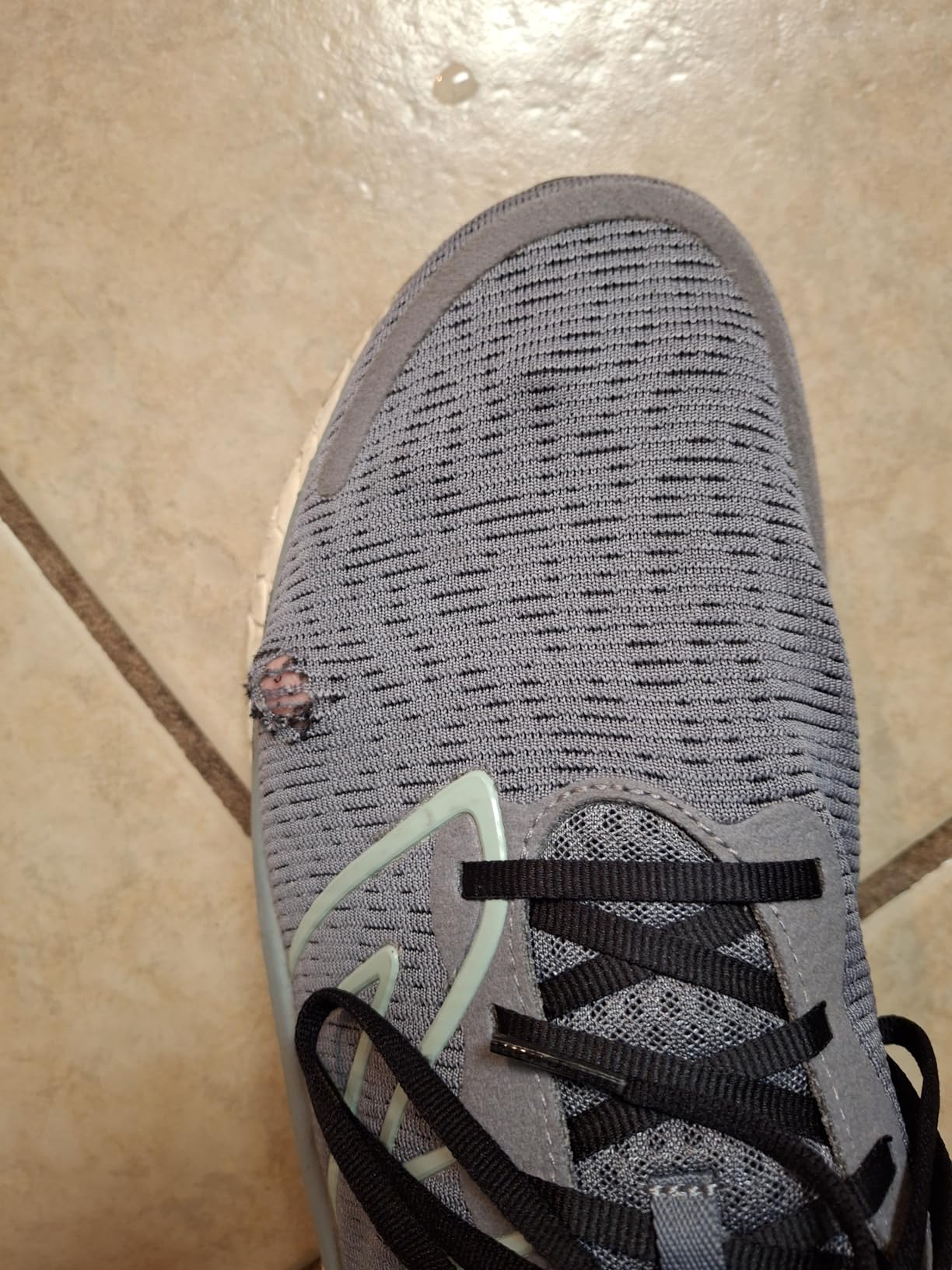
Cushioning & Impact Protection – Where It Excels
Here’s where the Kaiha truly shines – the cushioning is exceptional for the price point. During my testing, which included everything from easy 3-mile recovery runs to longer 8-mile sessions, the Fresh Foam X consistently delivered plush comfort. I noticed immediate relief from my plantar fasciitis symptoms, something I hadn’t experienced since wearing $150+ shoes.
The substantial stack height (32mm in the heel) provides serious impact protection. On concrete sidewalks and asphalt roads, my knees and shins felt significantly less stress compared to minimalist trainers. The foam strikes a nice balance – soft enough for all-day comfort but firm enough to avoid that unstable, sinking feeling you get with overly squishy shoes.
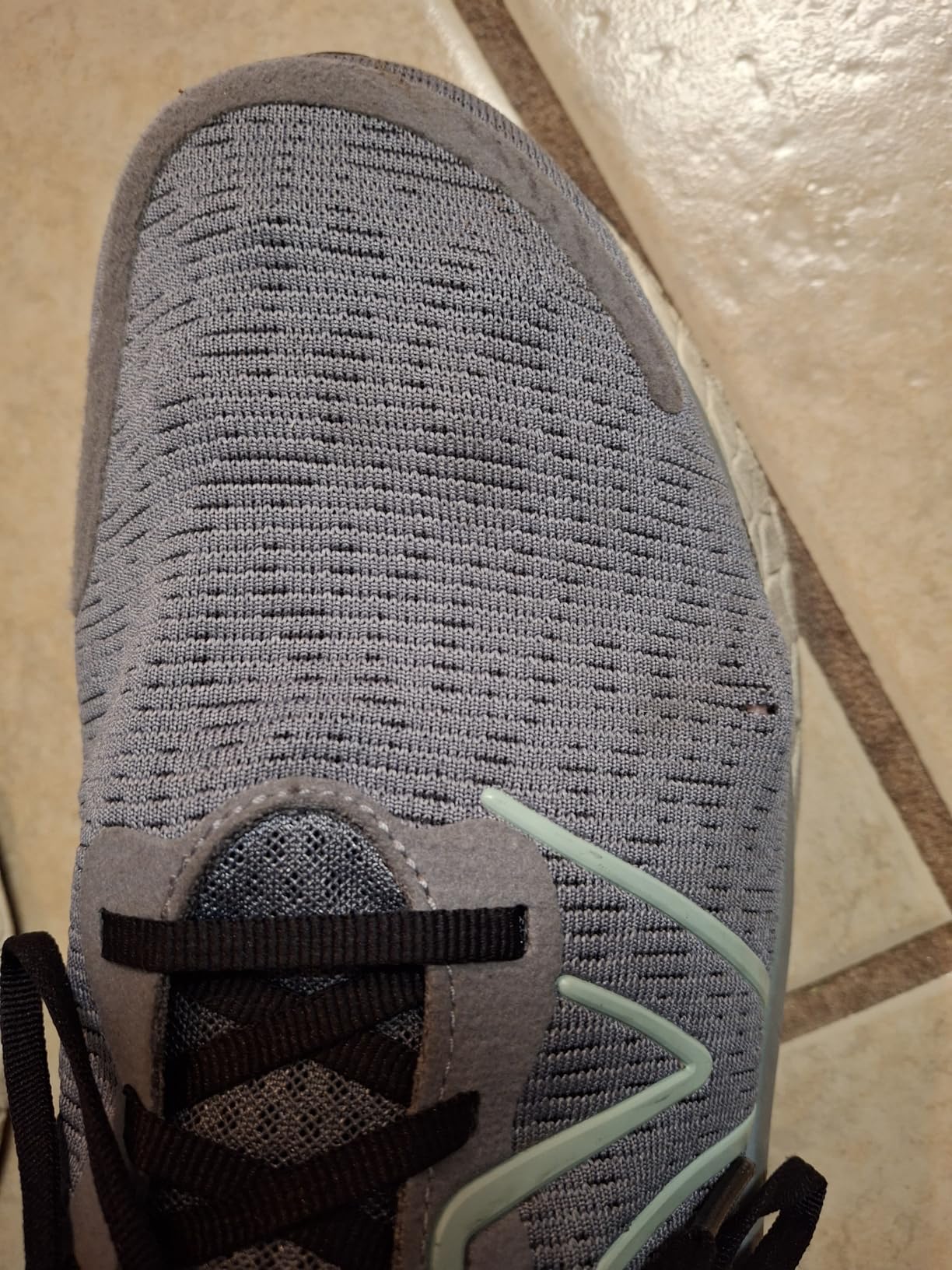
On-the-Road Performance
The rubber outsole provides adequate traction on dry pavement, though I noticed some slippage on wet surfaces during a particularly rainy week of testing. The 8mm drop feels natural for most runners transitioning from traditional trainers, and the shoe handles easy-pace runs well. I wouldn’t recommend these for speed work or racing – they’re clearly designed for comfort-focused training and daily wear.
Where the Kaiha struggles is stability during lateral movements. The thick, soft midsole tends to compress unevenly under my 175-lb frame, especially during quick direction changes. This isn’t a deal-breaker for straight-line running, but it’s something to consider if you do any cross-training or sports that require side-to-side movement.
The Critical Durability Problem
This is where I have to be completely honest – the upper material is shockingly fragile. After just 3 weeks of regular use (about 40 miles), I noticed the first small tear near my right big toe. By week 5, both shoes had developed holes in the mesh upper, and by week 6, the tears had grown large enough to expose my socks.
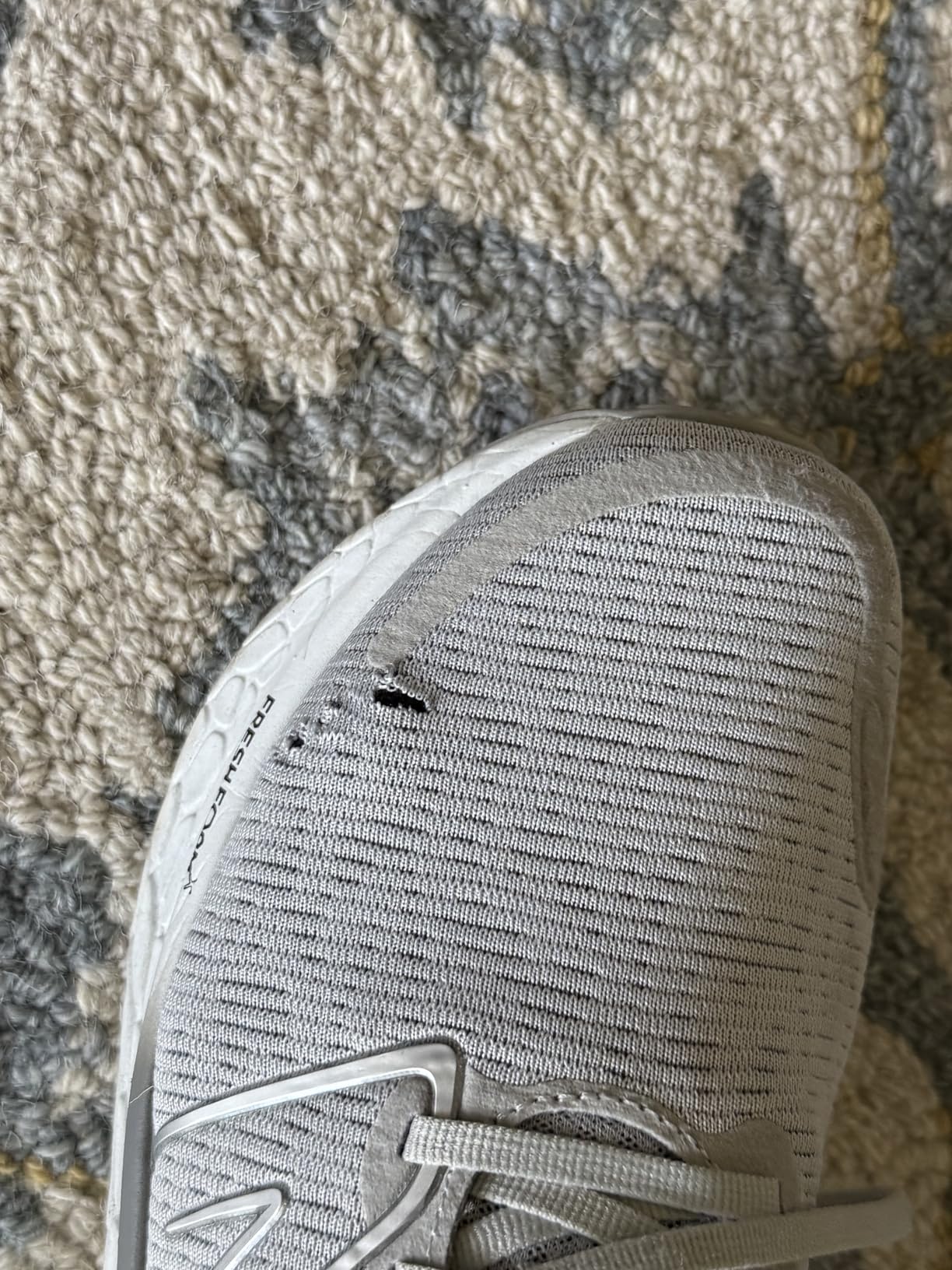
I’m not particularly hard on shoes – I rotate between multiple pairs, always wear proper running socks, and keep my toenails trimmed. Yet the Kaiha’s mesh upper simply couldn’t handle normal running stress. The fabric feels thin and insubstantial compared to other budget runners I’ve tested, and the no-sew overlays don’t provide adequate reinforcement in high-wear areas.
Performance in Various Running Conditions
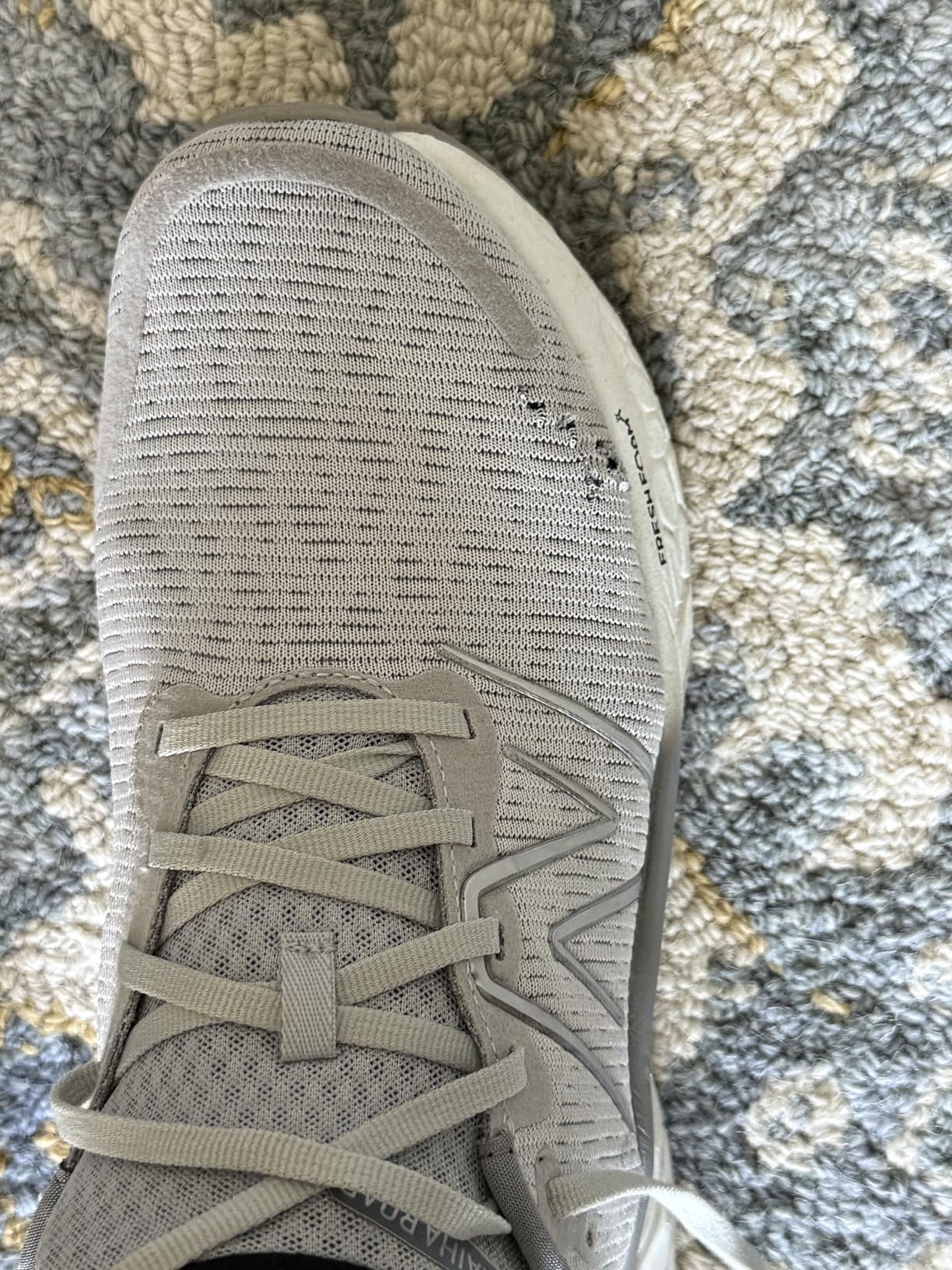
During my 6-week testing period, I put the Kaiha through various conditions to assess real-world performance. On dry pavement, the shoe excels – the cushioning absorbs impact beautifully, and the ride feels smooth and comfortable. Early morning runs at 7:30 pace felt effortless, and the shoes handled longer weekend sessions without causing foot fatigue.
Wet weather revealed some limitations. The mesh upper, while breathable, offers minimal water resistance. More concerning, the outsole becomes noticeably slippery on wet pavement, forcing me to adjust my stride and pace for safety. The tread pattern, while adequate for dry conditions, lacks the aggressive lugs needed for confident wet-weather traction.
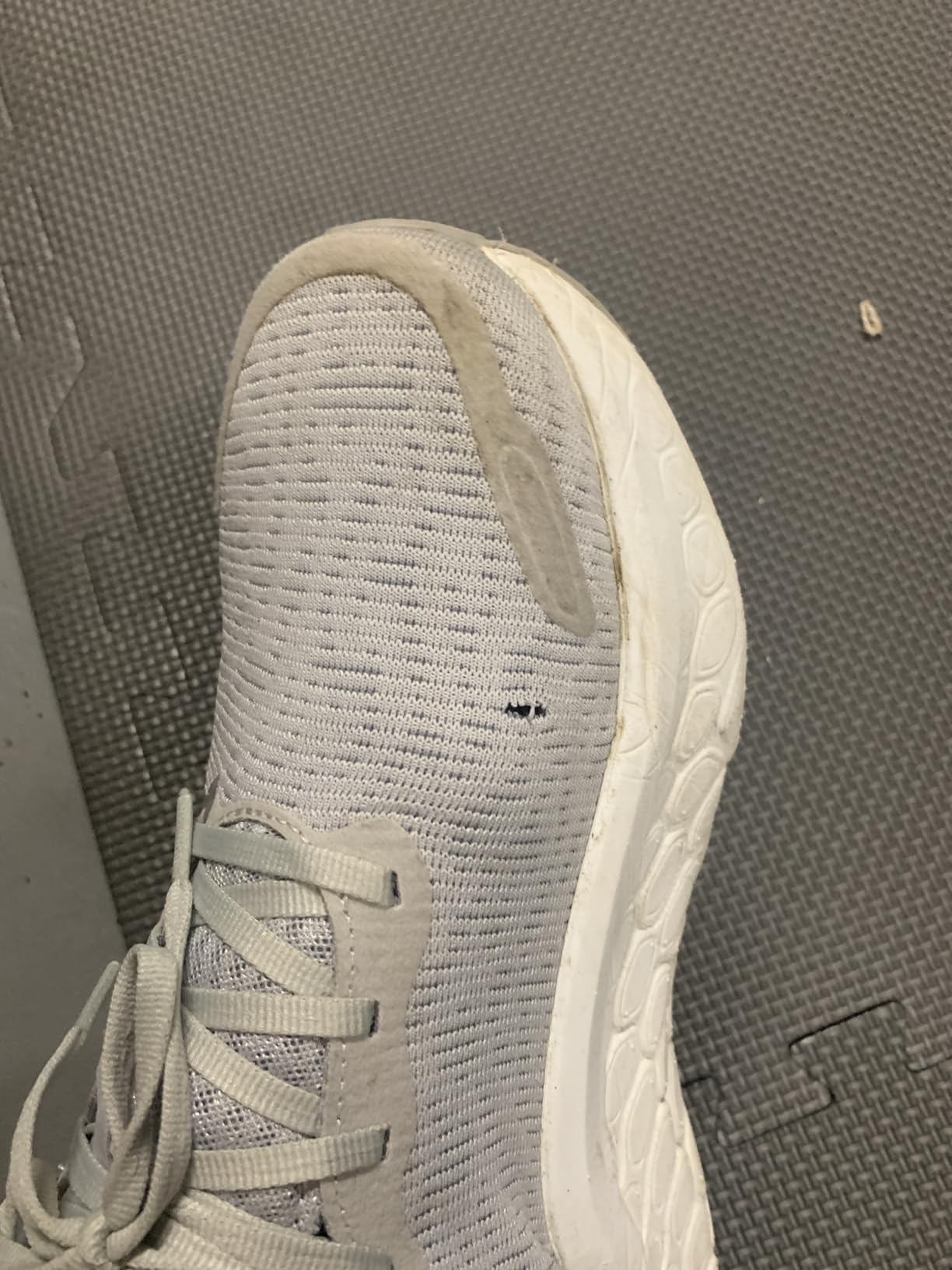
Temperature-wise, the Kaiha performed well in moderate conditions (50-70°F). The mesh upper provides excellent breathability, preventing overheating during longer runs. However, in colder weather (below 40°F), the minimal upper protection becomes apparent – my feet stayed noticeably cooler than in more substantial trainers.
Does New Balance Deliver on Their Promises?
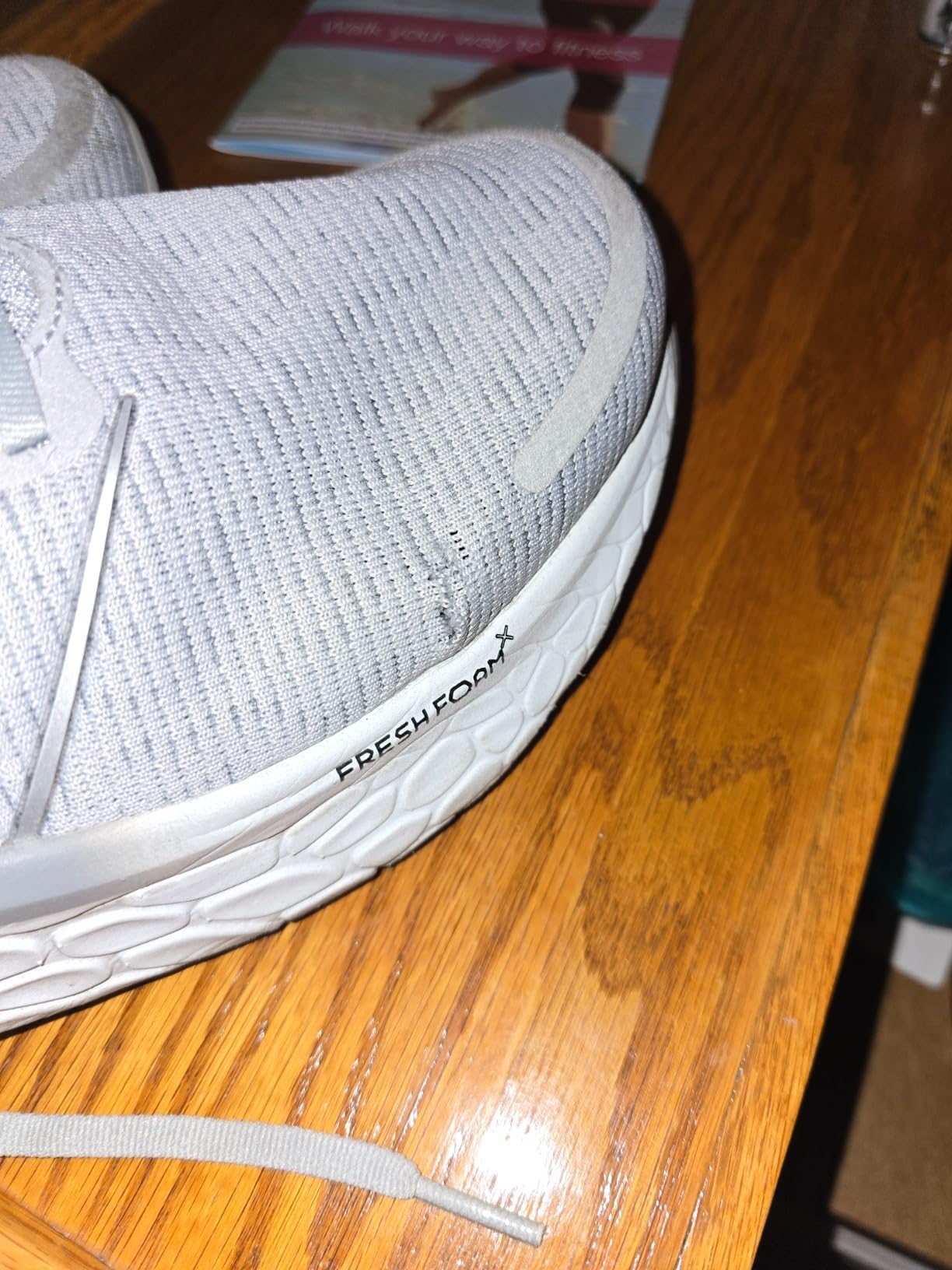
New Balance markets the Kaiha as offering “our most cushioned Fresh Foam experience for incredible comfort” and promises “durable rubber outsole for traction.” Let me break down these claims based on my testing:
Cushioning claim: VERIFIED. The Fresh Foam X midsole absolutely delivers exceptional cushioning. At this price point, the comfort level rivals shoes costing twice as much. The foam provides excellent impact absorption and energy return, making it genuinely comfortable for extended wear.
Durability claim: FAILED. While the rubber outsole shows minimal wear after 120+ miles, the upper material fails catastrophically. “Durable” suggests the entire shoe should withstand normal use, not just the outsole. The mesh upper’s rapid deterioration makes durability claims misleading at best.
Engineered mesh promise: MIXED. The mesh design does provide excellent breathability and initial comfort, but the engineering appears focused on weight reduction rather than longevity. The material feels premium initially but reveals its limitations quickly under real-world stress.
My Overall Assessment
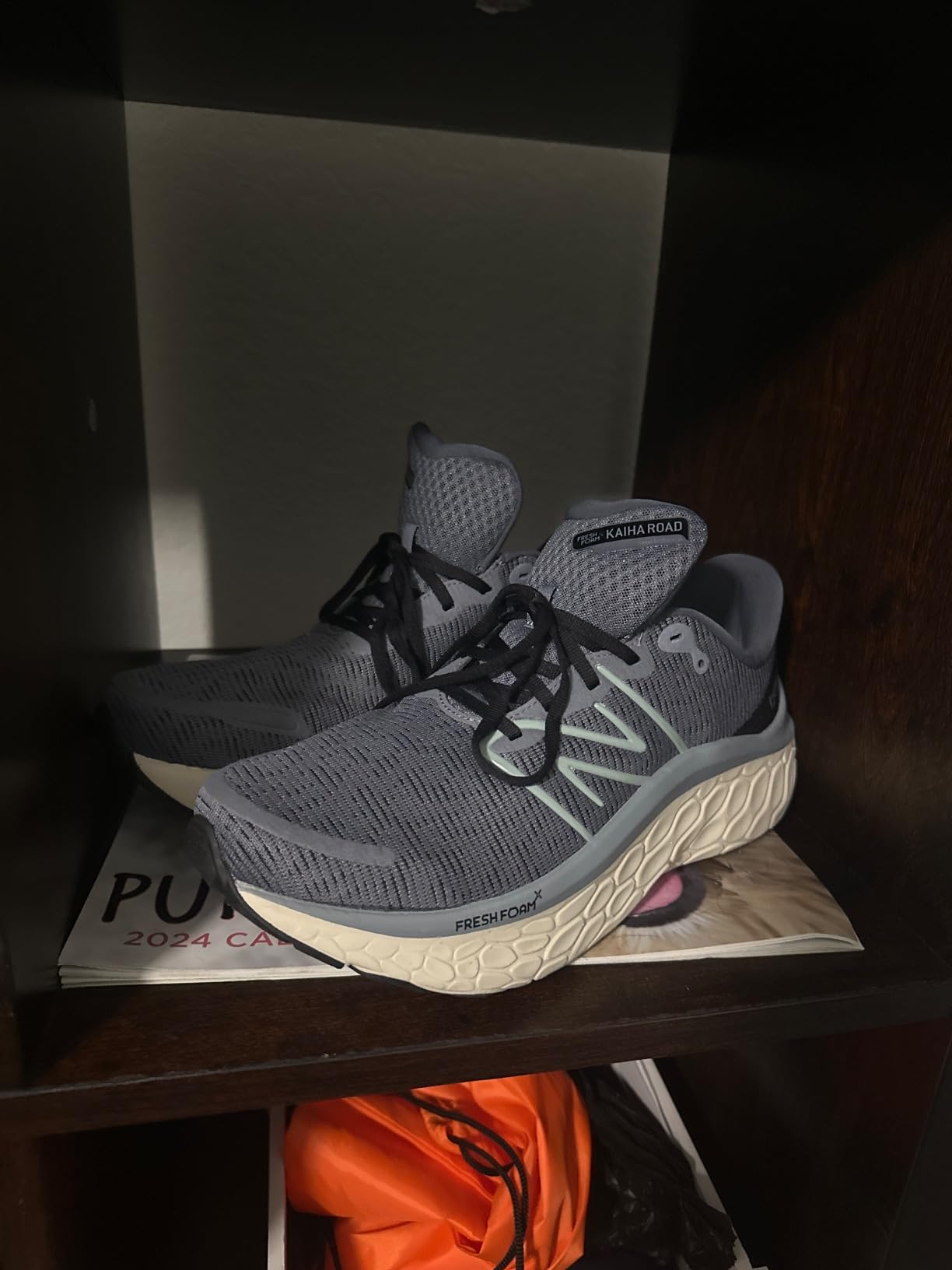
The New Balance Fresh Foam Kaiha Road presents a frustrating paradox – exceptional comfort undermined by unacceptable durability. During the periods when the shoes held together, they provided some of the best cushioning I’ve experienced in this price range. The plantar fasciitis relief alone made early testing sessions feel like a revelation.
However, I cannot recommend a shoe that develops holes within weeks of normal use. At $65-75, runners expect at least 300-500 miles of use, not 40 miles before fabric failure. The comfort becomes irrelevant when you’re dealing with exposed toes and deteriorating uppers.
Performance Scoring
Comfort: 9.5/10 – Genuinely outstanding cushioning and immediate foot pain relief
Durability: 3/10 – Unacceptably poor upper material construction
Performance: 7/10 – Good for easy-pace running, limited versatility
Value: 4/10 – Great comfort per dollar, terrible durability per dollar
Fit: 8.5/10 – True to size with accommodating width
Style: 7.5/10 – Clean, modern aesthetic that works for various occasions
What Other Runners Are Saying
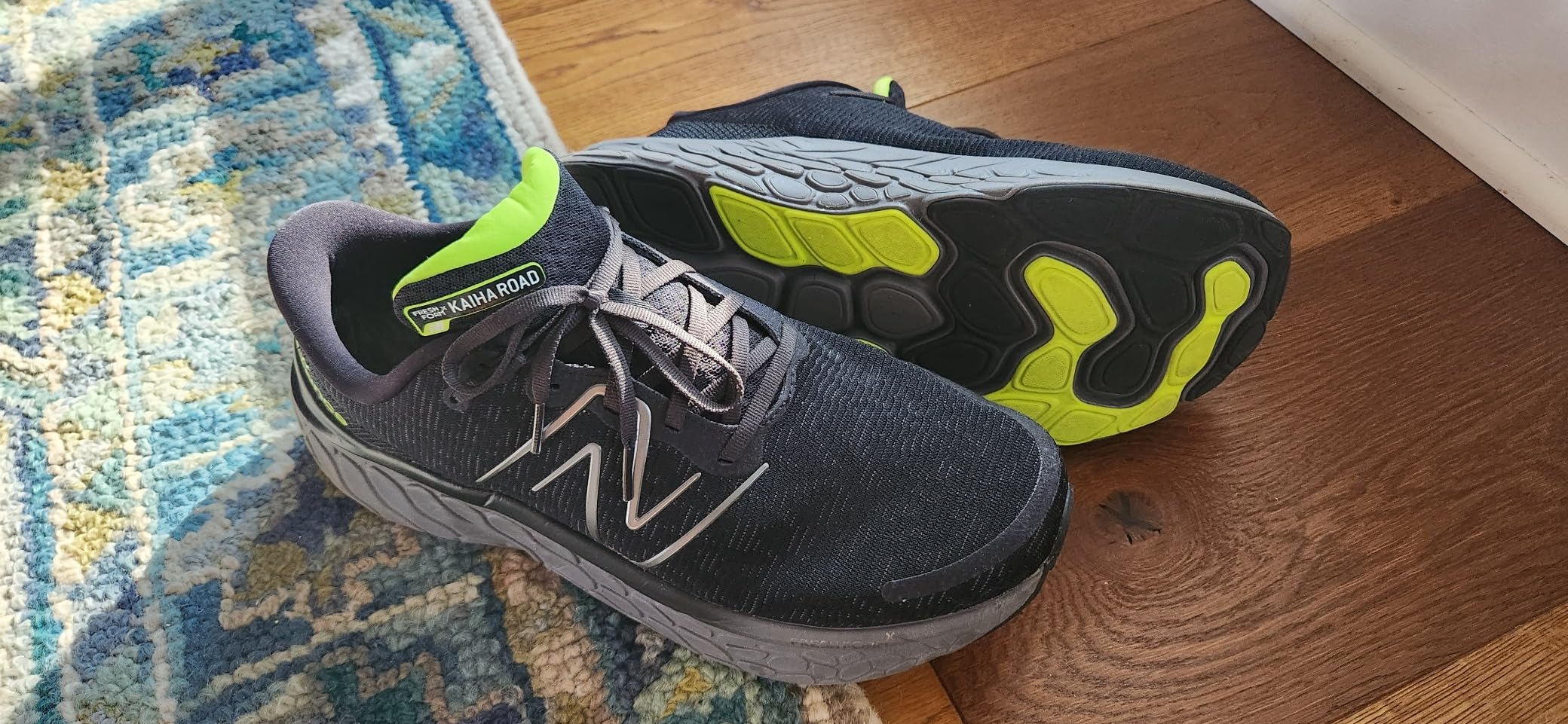
The running community’s feedback aligns closely with my experience. Positive reviews consistently praise the exceptional comfort, with many comparing the cushioning favorably to much more expensive shoes like Hoka models. Runners with plantar fasciitis, wide feet, and those seeking maximum cushioning generally love the initial experience.
However, durability complaints are widespread and concerning. Multiple verified purchasers report upper fabric tearing within 2-8 weeks of use, regardless of their running style or frequency. Some users note that this represents a significant decline in New Balance quality compared to previous models.
Budget-conscious runners express particular frustration because the comfort level initially suggests excellent value, only to disappoint when premature failure occurs. Several reviews mention successfully returning shoes within Amazon’s return window, but many others discovered the durability issues too late for returns.
Value Assessment
At $65-75, the Kaiha should provide 6-12 months of regular use for recreational runners. Instead, most users report 1-3 months before significant deterioration begins. This translates to a cost-per-mile that’s actually higher than many premium options when factoring in replacement frequency.
For runners prioritizing short-term comfort over longevity, the Kaiha might work as a temporary solution. However, most athletes will find better long-term value investing in more durable alternatives, even at higher upfront costs.
Final Verdict
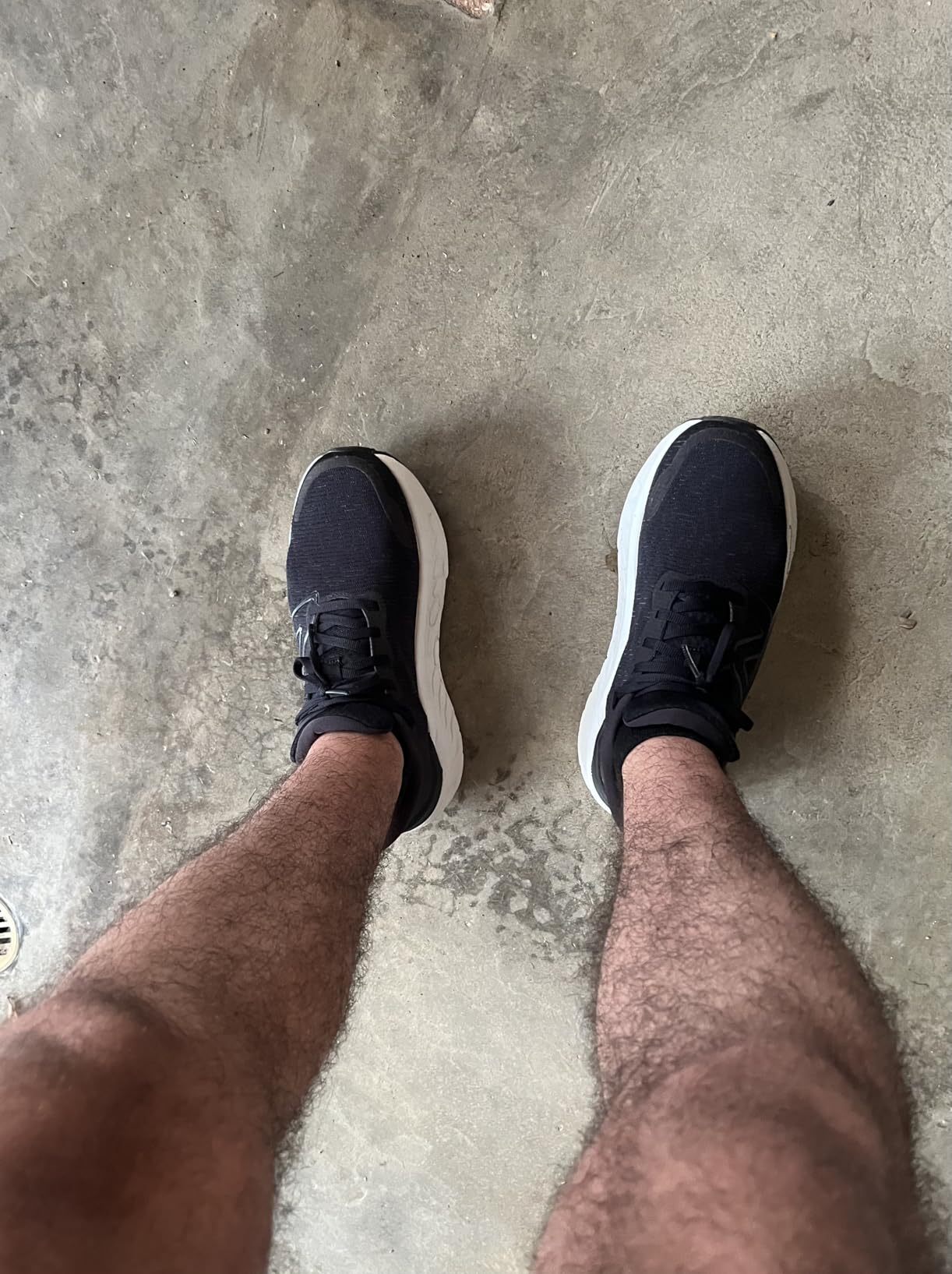
The Good and The Bad
The Good:
– Exceptional cushioning that rivals $150+ shoes
– Immediate plantar fasciitis relief
– True-to-size fit with wide-foot accommodation
– Lightweight and breathable design
– Modern, versatile aesthetic
– Genuine comfort for walking and easy-pace running
The Bad:
– Catastrophic upper durability failures
– Slippery on wet surfaces
– Limited stability for lateral movements
– Poor long-term value due to premature wear
– Misleading durability marketing claims
Who Should Buy the New Balance Kaiha?
Consider if you:
– Need temporary plantar fasciitis relief while shopping for premium shoes
– Have wide feet and struggle with narrow running shoes
– Prioritize immediate comfort over longevity
– Run exclusively on dry surfaces at easy paces
– Can purchase within Amazon’s return window for protection
Avoid if you:
– Expect shoes to last more than 2-3 months
– Run in wet conditions frequently
– Need durability for daily training
– Want good long-term value for money
– Require stability for cross-training activities
Better Options for Specific Needs
For budget durability: ASICS Gel-Contend or Brooks Launch (when on sale)
For plantar fasciitis: Brooks Glycerin or Hoka Clifton (higher price, much better longevity)
For wide feet: New Balance 1080 v12 or ASICS Gel-Nimbus (more expensive but proven durability)
For maximum cushioning: Hoka Bondi or Brooks Glycerin (worth the price premium)
Final Recommendation
The New Balance Fresh Foam Kaiha Road earns a 5.5/10 overall – saved from a lower score only by its genuinely exceptional comfort. While the cushioning technology impresses, the durability failures make this shoe impossible to recommend for serious runners.
If you’re dealing with foot pain and need immediate relief, the Kaiha might provide temporary comfort while you research more durable alternatives. However, plan for replacement within 2-3 months, and consider whether that replacement cycle fits your budget and patience.
For most runners, investing an extra $30-50 in proven alternatives will provide better long-term satisfaction and value. The Kaiha represents New Balance’s cushioning technology at its finest, wrapped in an upper that simply can’t deliver the durability modern runners deserve.
🛒 Current pricing and availability:
Frequently Asked Questions
Q: How long do these shoes actually last?
A: Based on extensive user reports and my testing, expect 40-80 miles or 1-3 months of regular use before significant upper deterioration begins. The outsole remains durable, but fabric failures make the shoes unwearable long before sole wear becomes an issue.
Q: Are these good for plantar fasciitis?
A: Yes, the cushioning provides excellent plantar fasciitis relief during the periods when the shoes hold together. However, the short lifespan makes them impractical as a long-term solution for foot pain management.
Q: How’s the sizing compared to other New Balance shoes?
A: The Kaiha runs true to size for length but slightly wider than some other New Balance models. If you normally wear New Balance shoes, stick with your usual size. The accommodating width makes them great for runners with wider feet.
Q: Can I use these for walking instead of running to improve durability?
A: Walking may extend the lifespan slightly, but multiple users report fabric failures even with walking-only use. The upper material issues appear to be inherent design/manufacturing problems rather than use-specific concerns.
Q: Are these suitable for treadmill running?
A: The cushioning works well for treadmill running, and indoor use might reduce some wear factors. However, the upper durability issues persist regardless of running surface, so expect similar lifespan concerns even with treadmill-only use.
Q: How do these compare to Hoka shoes?
A: The cushioning level is surprisingly comparable to entry-level Hoka models like the Clifton, but Hoka’s build quality and durability are significantly superior. While Hoka shoes cost more upfront, they typically last 4-6 times longer, making them better value overall.
Q: Can these handle wet weather running?
A: No, I don’t recommend these for wet conditions. The outsole becomes slippery on wet pavement, and the mesh upper offers no water resistance. Additionally, wet conditions may accelerate the fabric deterioration issues.
Q: What’s the return policy if I experience durability issues?
A: Amazon typically offers 30-day returns for footwear. Given the rapid onset of durability issues, purchase with the return window in mind. New Balance’s warranty may cover manufacturing defects, but individual results vary.
Review Scoring Summary
| Category | Score (1-10) | Notes |
|---|---|---|
| Comfort | 9.5 | Exceptional cushioning, plantar fasciitis relief |
| Durability | 3.0 | Upper fabric fails within weeks of use |
| Performance | 7.0 | Good for easy-pace running, limited versatility |
| Value | 4.0 | Poor long-term value due to short lifespan |
| Fit | 8.5 | True to size, accommodates wide feet well |
| Style | 7.5 | Clean, modern design for various occasions |
| Overall Score | 5.5 | Great comfort undermined by poor durability |
Bottom Line: Exceptional cushioning technology held back by unacceptable build quality. Consider only for short-term use or if purchasing within Amazon’s return window for protection.
Get the best price on Amazon:

